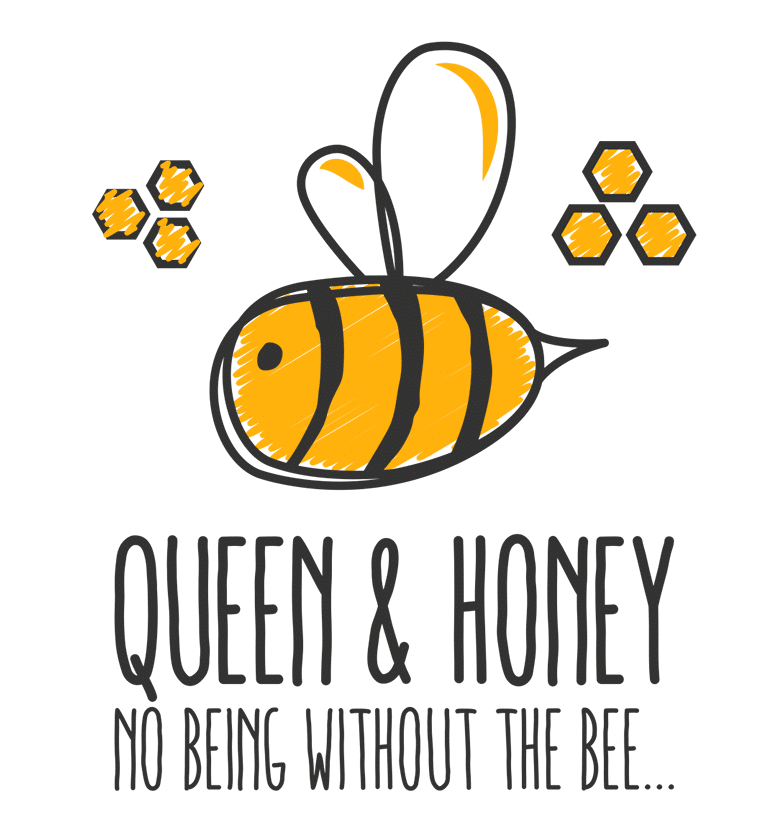If the bee disappeared off the face of the Earth, man would only have four years left to live. No more bees, no more pollination, no more plants, no more animals, no more man.´ This, for the human race, means we have a huge challenge ahead.
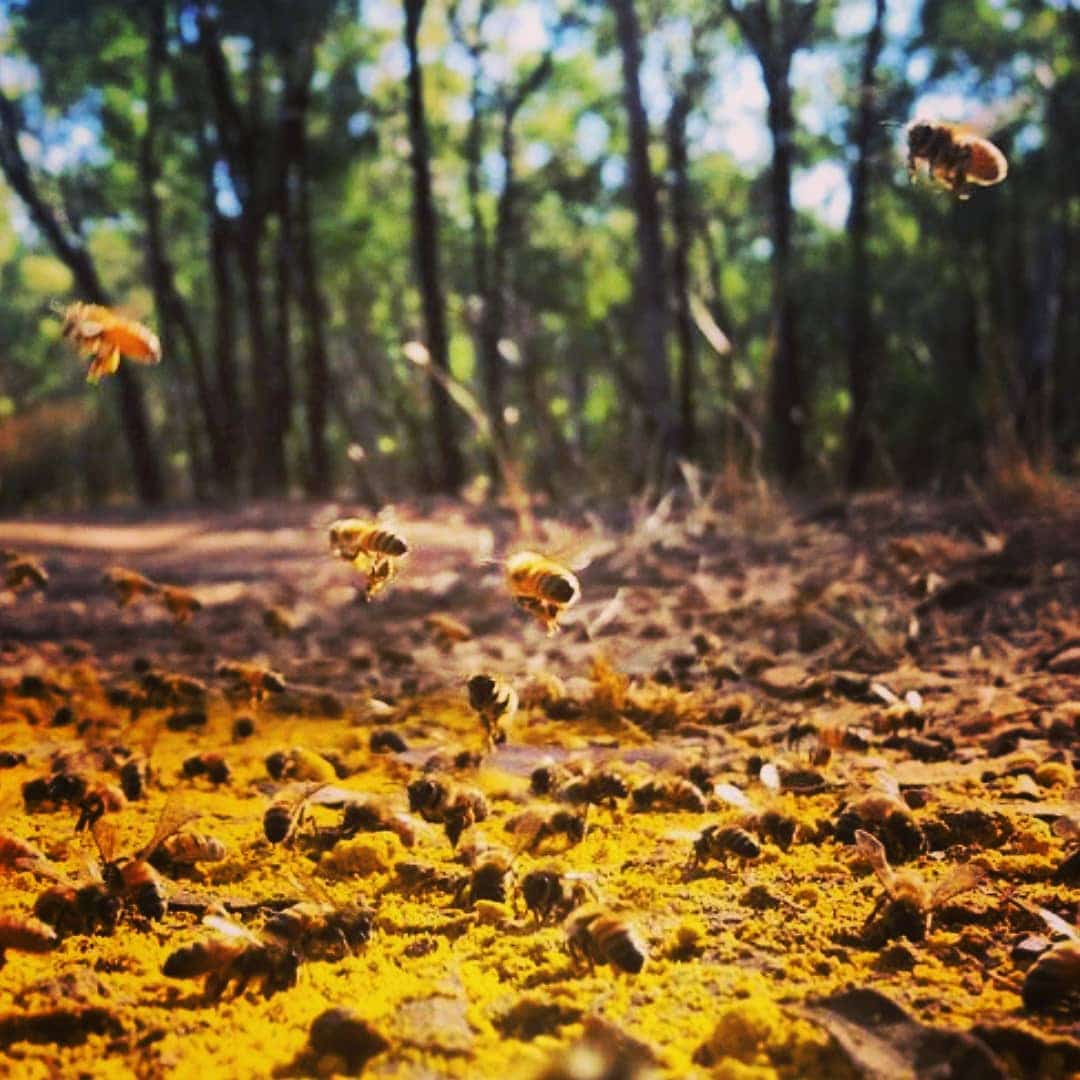
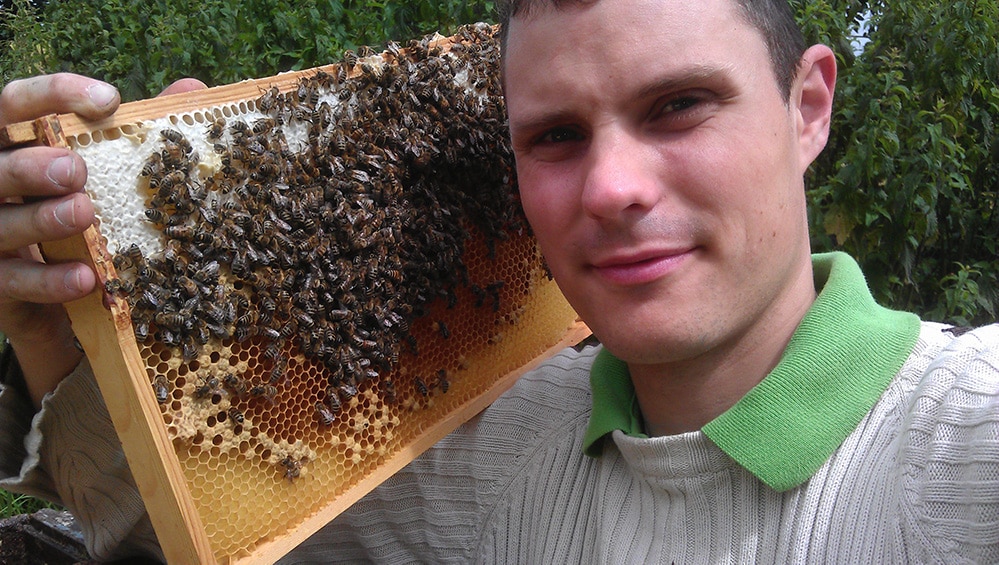
I found my passion in beekeeping
During the summer of 1998, on a family friend’s organic farm within my neighbourhood, I found my passion in beekeeping. My adventurous spirit and my love for beekeeping brought me to the wide-brown land. Ever since we are caring for the bees and the family, while building bee-box, after bee-box, after bee-box.
We pride ourselves on being a family business
Our mission is to develop sustainable and eco-friendly beekeeping methods that not only provide honey and keep the bees thriving, but support farming practices to yield higher crops. We pride ourselves on being a family business, supporting other families. In order to do this, we need to work together- and we share the example of a bee colony to help us explain just why,
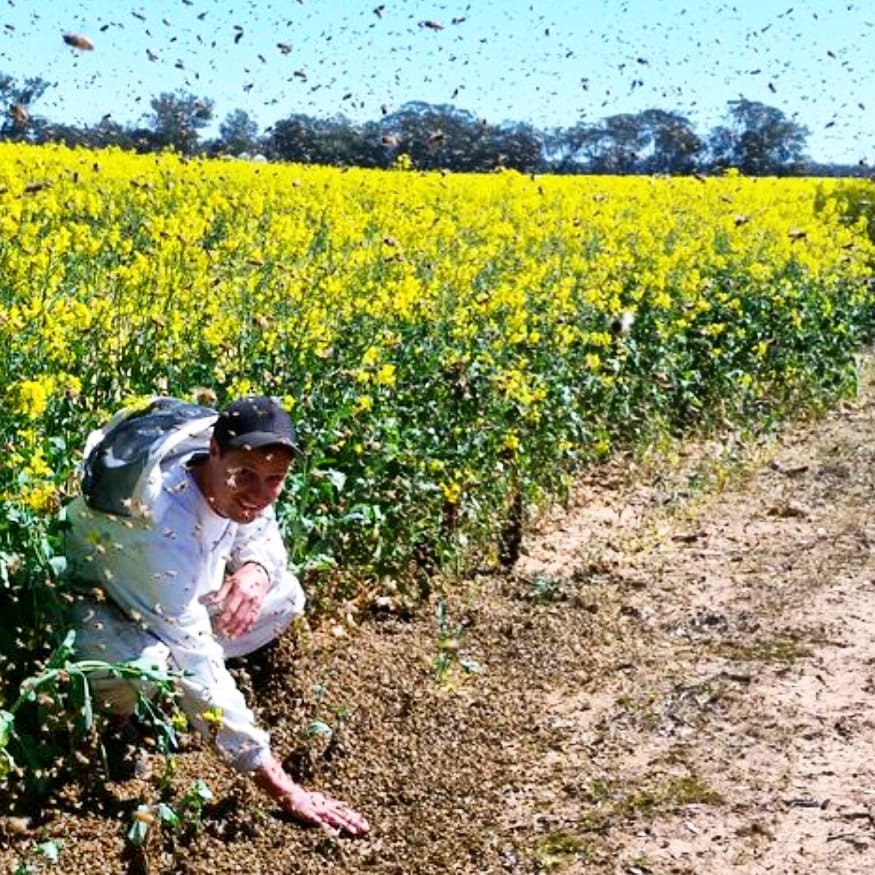

Bees are incredibly intelligent and social creatures
Bees are incredibly intelligent and social creatures, each relying on one another within the colony to survive. The queen of course, relies on the workers to be fed and clean her, the workers rely on each other for warmth, direction and protection. The drones need food and, without others feeding them, they would not survive. So you see, by working together, they sustain and protect their species, just as we should be doing.
And this is where we need you!
We are putting you in charge of the bees- pollination around your door step, flowers within your garden, reducing your use of pesticides and (you’ll see why shortly) buying our honey. But how could this help?
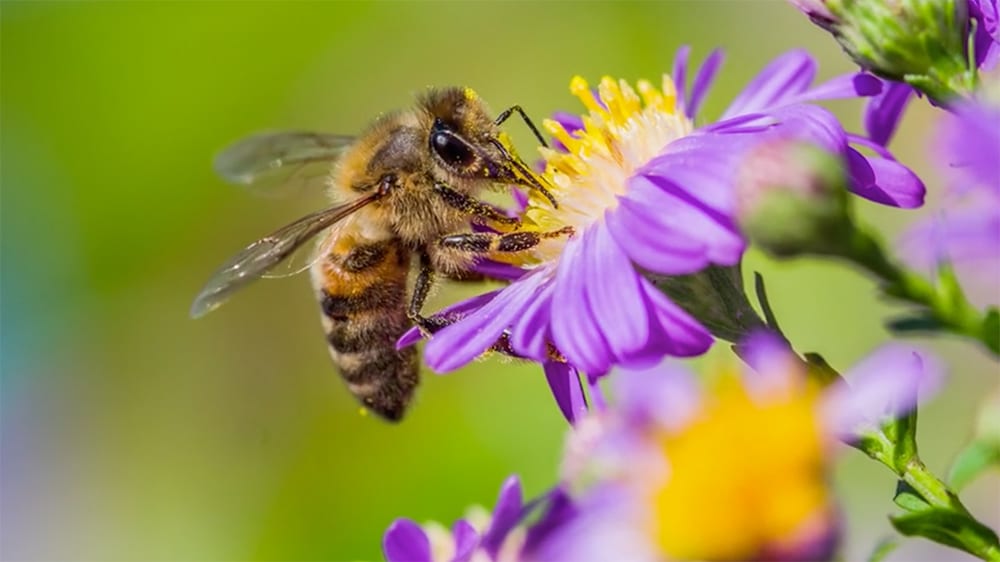
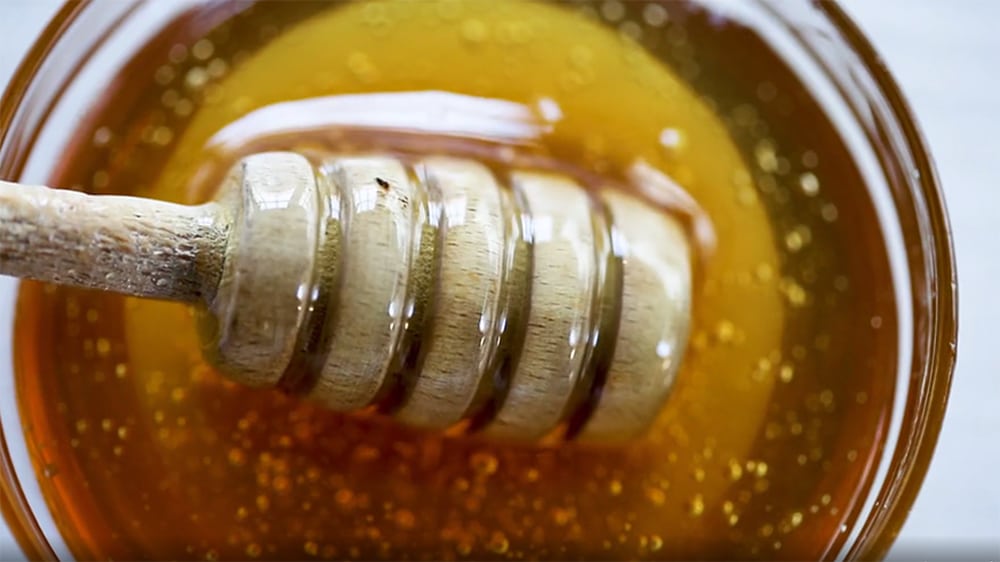
We’ve already heard you questioning…
Every jar of honey we sell, gives us more resources, more knowledge, and more ability to grow, producing more hives and thus providing more pollinators to continue the growth of the food that ultimately ends up on your table.
And now our question to you
Do you believe in a producer to consumer connection? Did you know that the bees who made your honey have also pollinated between 450 000 and 3 000 000 flowers per jar? How cool to think that these flowers, and of course the honey you eat, are from your community. That beats foreign ‘honey’ any day of the week.
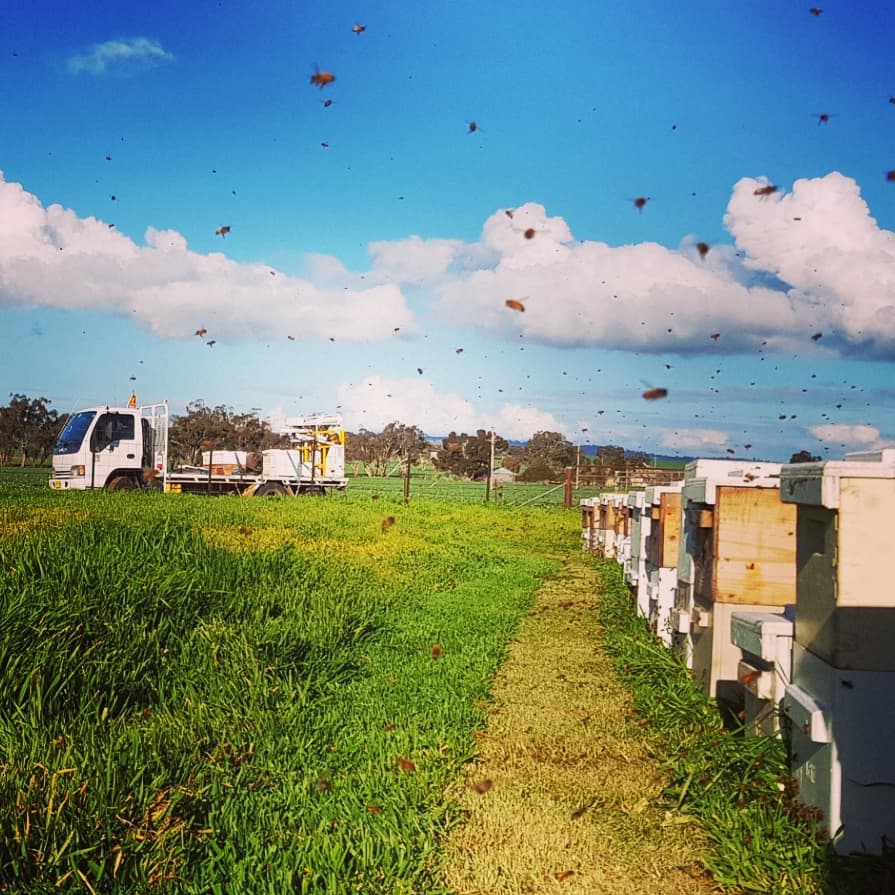
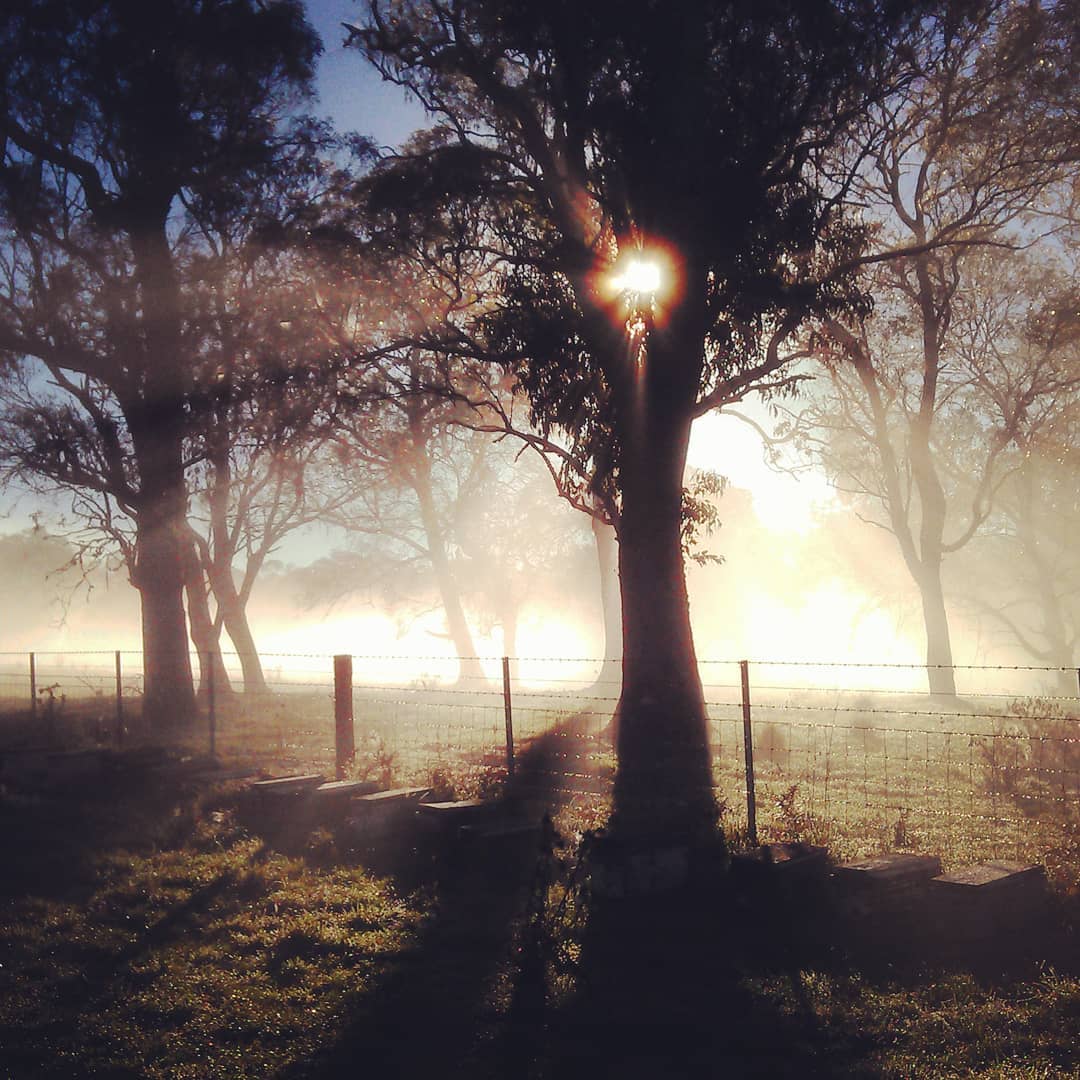
From humble beginnings
From humble beginnings, to big dreams of helping the globe, we urge you to get on board. We will continue to get the stings (roughly 100 per day) if you get on board with us! Buy local, support our business, so we can continue to support farmers and support you. Our planet relies on it.
Ben Hinkelmann
